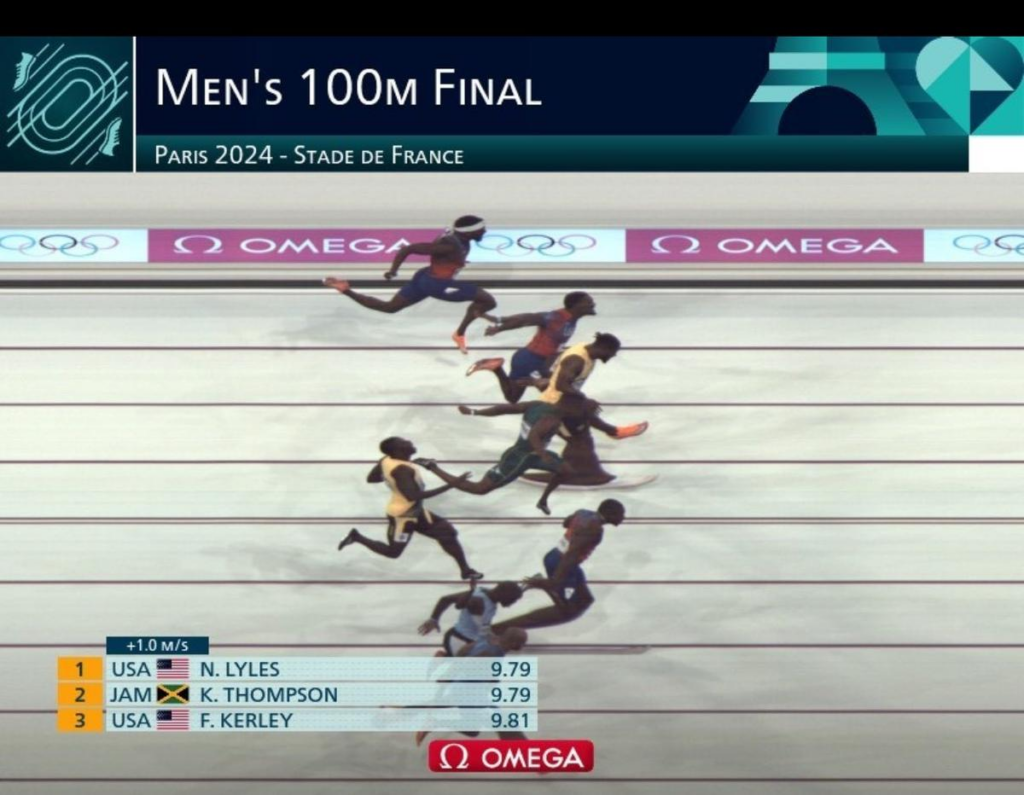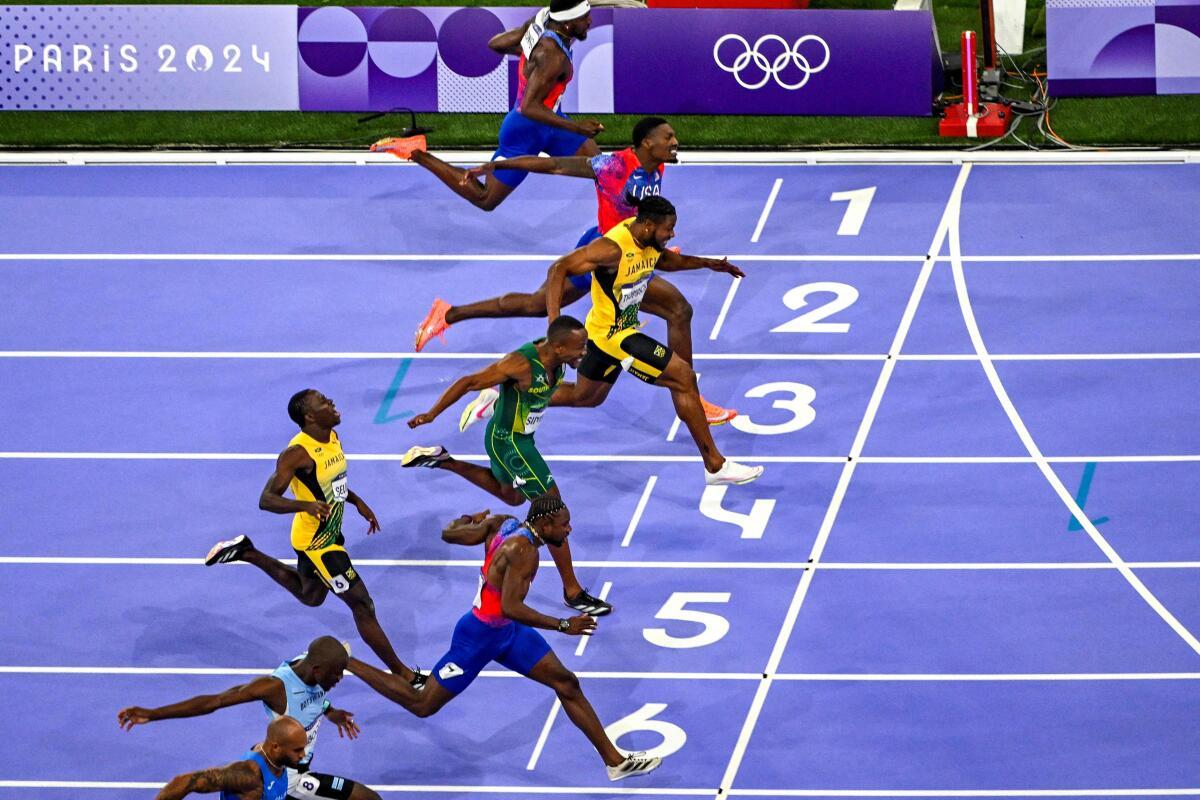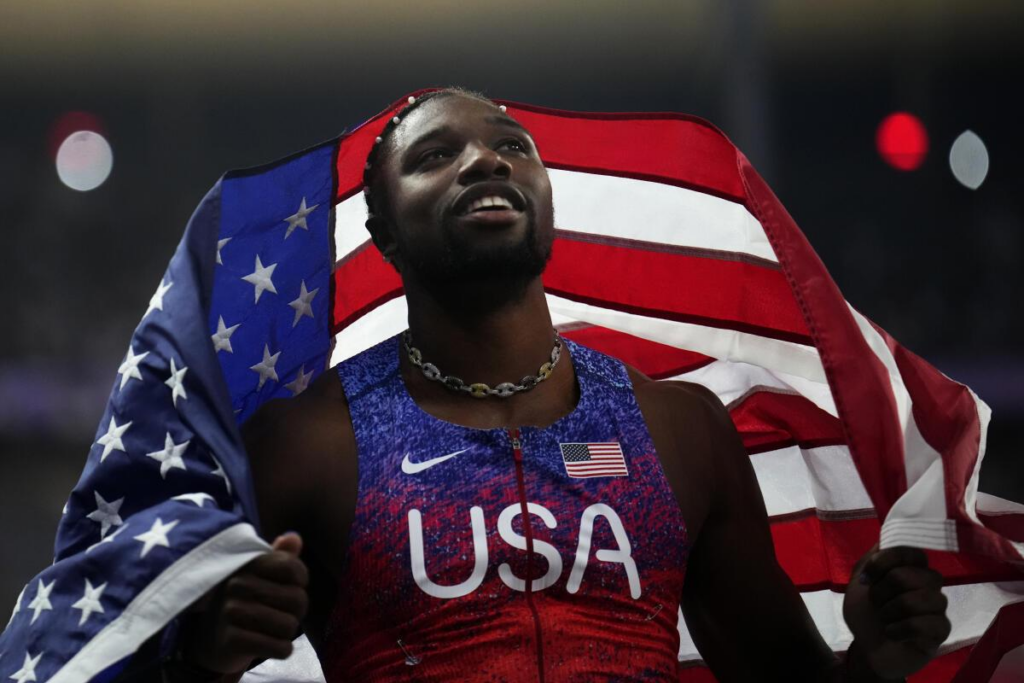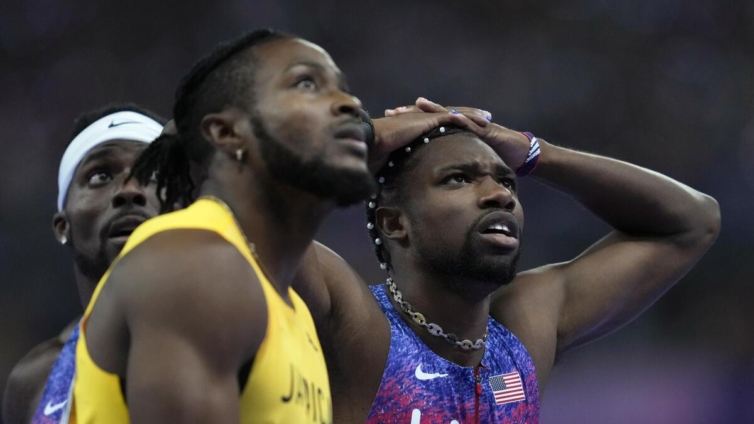It's been more than 24-hours since the men's 100m final at the Paris 2024 Olympic Games, and debate rages on about how the winner of the much-talked about final was determined.
On social media, I continue to be inundated with questions about what factors were considered in separating the two - American Noah Lyles, who was declared winner, and Jamaican Kinshane Thompson, who got the silver - despite both athletes finishing with the same time of 9.79s.
Officially, Lyles won by 5000th of a second, or numerically, by 0.005s. The final times were determined to be 9.784s for Lyles and 9.789s for Thompson.
Officially, it was the slimmest margin a champion has ever been determined in Olympics history, and the first time all eight (8) finalists ran sub-10 times in 100m.
The still pictures at the finish line show the Jamaican's foot firmly planted on the finish line first and his head appears to be ahead of Lyle's as well, leading many to suggest that means he won, and thus was robbed.
The same image shows Lyle's torso, or upper body, slightly ahead, confirming he won the race.

In the end, it took the photo finish a few vital seconds - as athletes, spectators and journalists held their breath - to confirm the 27-year-old American as the winner.
But there are people who are hearing the idea of a torso being important in determining athletics results for the first time, so let's explain.
To understand what happened on Sunday night, we first need to understand how World Athletics - the governing body for athletics explains what a photo finish is.
At the finish line of every athletic track, there are a number of equipment installed to determine who crossed the line first.
First is the “slit-video” system, which scans an ultra-thin segment of the track precisely aligned with the finish line at an incredible 2,000 times per second. This provides an unbroken image of each athlete crossing the line — and coordinates it with the athlete’s time.
In addition to that, there’s another camera on the other side of the field in case a runner is hidden or blocked by another runner.

Then there's the flash timer, which clocks the final times of athletes.
According to experts, that system has a margin of error that can throw times off by 0.01 or 0.02 of the official time. But this is not an issue because, that margin is compensated for by the other two systems in place.
Now the most important part of determining the official timing, which in turn decides the race, is the body part that has to cross the finish line.
In the 100m final at the Paris Olympics, Thompson’s foot looks like it breached first. The athlete’s torso is the body part that has to cross the finish line for official timing registration, not his foot or head or any other part, just the torso. The torso, or trunk, of a person includes the chest, abdomen, pelvis, and back.
In the event of a close race like Sunday's, the review process is conducted where evidence from all three systems are consolidated to ensure the athlete whose torso crossed first, however marginal, is rightfully declared the winner. In this case, it was Noah Lyles.

Lyles started joint-slowest out of the 8 men in the final, along with Botswana's Letsile Tebogo, and was in 8th place for the first half of the race, but his phenomenal top end speed meant he was able to catch up with the rest of the pack and nick the win in the process.
The Jamaican started out in fourth place and led the race right until the last 10m before Lyles took over and nosed ahead for gold.
This was already the most competitive final at the Olympic level, with it being the first time that an athlete with a sub-10 mark failed to make the last run. All eight finalists clocked sub-10 timings in the final, and fine margins separated one from the other.
Latest Stories
-
I want to focus more on my education – Chidimma Adetshina quits pageantry
2 hours -
Priest replaced after Sabrina Carpenter shoots music video in his church
2 hours -
Duct-taped banana artwork sells for $6.2m in NYC
2 hours -
Arrest warrants issued for Netanyahu, Gallant and Hamas commander over alleged war crimes
2 hours -
Actors Jonathan Majors and Meagan Good are engaged
2 hours -
Expired rice saga: A ‘best before date’ can be extended – Food and Agriculture Engineer
2 hours -
Why I rejected Range Rover gift from a man – Tiwa Savage
2 hours -
KNUST Engineering College honours Telecel Ghana CEO at Alumni Excellence Awards
3 hours -
Postecoglou backs Bentancur appeal after ‘mistake’
3 hours -
#Manifesto debate: NDC to enact and pass National Climate Law – Prof Klutse
3 hours -
‘Everything a manager could wish for’ – Guardiola signs new deal
3 hours -
TEWU suspends strike after NLC directive, urges swift resolution of grievances
3 hours -
Netflix debuts Grain Media’s explosive film
4 hours -
‘Expired’ rice scandal: FDA is complicit; top officials must be fired – Ablakwa
4 hours -
#TheManifestoDebate: We’ll provide potable water, expand water distribution network – NDC
5 hours

